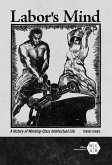"Like many Midwestern factory towns, deindustrialization damaged Racine in the 1970s and 1980s. But the Wisconsin city differed from others like it in one important way: workers maintained their homegrown working-class economy and political culture. Even as labor declined across the country, Racine's workers successfully fought for fair housing and education, held politicians accountable, and allied with racial and gender justice organizations. Naomi R Williams traces the journeys of two local activists to highlight how people can support democracy and economic freedom in the twenty-first century. In Racine, ideas of class and race shifted but remained strong. The broad-based class politics that emerged drew on racial analysis, vigilant organizing, and agile labor leadership that organized more people. Unionized workers in turn won political power while uniting to resist conservative and corporate attacks. Charting Racine's transition, Williams breaks down how worker solidarity persevered and presents lessons that can provide valuable guidance for today's generation of activists"--
Hinweis: Dieser Artikel kann nur an eine deutsche Lieferadresse ausgeliefert werden.
Hinweis: Dieser Artikel kann nur an eine deutsche Lieferadresse ausgeliefert werden.








